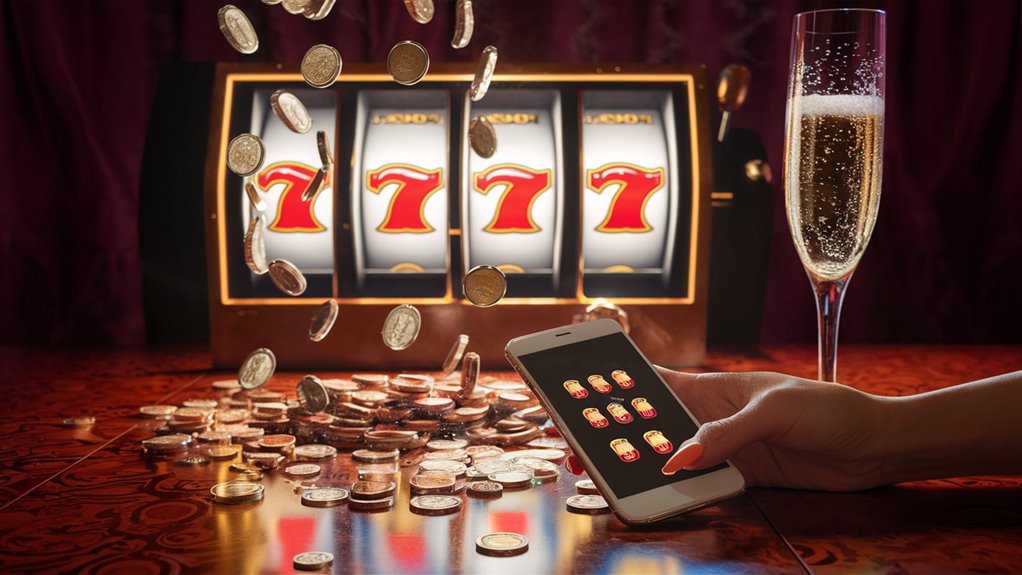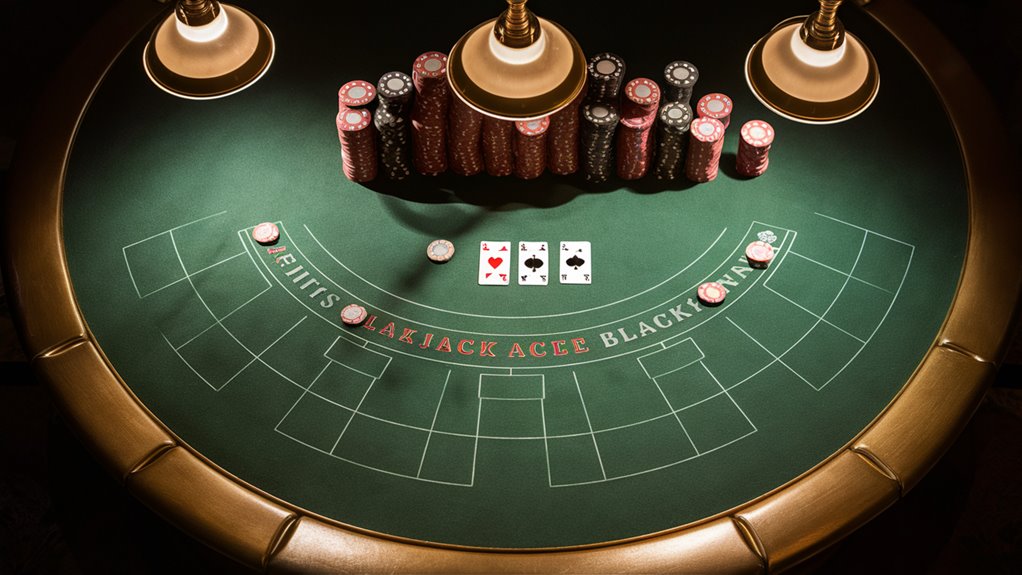Recovering from Gambling Losses: A Strategic Approach to Rebuilding
Redefining success after gambling losses requires a fundamental shift in perspective and practical action steps. Instead of pursuing unrealistic recovery goals, focus on achievable milestones that build sustainable progress.
Core Recovery Strategies
Responsible bankroll management forms the foundation of gambling loss recovery. Set strict daily budgets, implement timing controls, and develop trigger awareness to prevent relapse. Success comes through:
- Strategic budget planning
- Emotional regulation techniques
- Support system engagement
- Professional counseling
Building Financial Stability
Establish clear financial boundaries while working to rebuild your economic foundation. Track every expense, create emergency savings, and develop multiple income streams to strengthen your financial position.
FAQ: Gambling Loss Recovery
Q: How long does gambling recovery typically take?
A: Recovery timelines vary by individual, typically ranging from 6-24 months for financial stabilization.
Q: What are the first steps after significant losses?
A: Immediately cease gambling activities, assess total damages, and seek professional financial counsel.
Q: Can gambling debts be legally discharged?
A: Options vary by jurisdiction – consult legal experts for specific debt resolution strategies.
Q: How do I prevent relapse during recovery?
A: Implement blocking software, join support groups, and maintain accountability partnerships.
Q: What role does therapy play in recovery?
A: Professional therapy addresses underlying triggers and provides essential coping mechanisms for long-term success.
The Psychology Behind Rock Bottom

The Psychology Behind Rock Bottom: Understanding the Breaking Point
The Complex Nature of Rock Bottom
When individuals hit rock bottom, they experience a profound sense of despair and helplessness that becomes all-consuming.
This psychological state typically manifests as a complex mixture of shame, anxiety, and an overwhelming urge to escape the situation.
The experience affects far more than external circumstances – it strikes at the core of one’s self-worth and identity.
Neurological Impact and Behavioral Patterns
The brain’s response to reaching rock bottom involves both financial and emotional trauma.
The dopamine system, which previously reinforced positive experiences, can perpetuate destructive patterns. This neurological response often drives compulsive behavior even as negative consequences accumulate, creating a challenging cycle to break.
Understanding Different Breaking Points
Rock bottom experiences vary significantly among individuals. The breaking point might manifest as:
- Financial devastation
- Relationship breakdown
- Professional consequences
- Health complications
- Loss of personal identity
#
Frequently Asked Questions
Q: What defines hitting rock bottom?
A: Rock bottom is a highly personal experience characterized by reaching a crisis point that triggers recognition of the need for change.
Q: Can rock bottom be beneficial?
A: While traumatic, reaching rock bottom often serves as a crucial turning point for positive transformation and recovery.
Q: How does the brain respond to rock bottom?
A: The brain experiences both emotional and physiological responses, including altered dopamine function and stress hormone production.
Q: What’re the signs of approaching rock bottom?
A: Common signs include escalating destructive behaviors, isolation, financial problems, and deteriorating relationships.
Q: How can someone recover from rock bottom?
A: Recovery typically involves professional support, developing healthy coping mechanisms, and rebuilding damaged aspects of life systematically.
Recovery and Transformation
The acknowledgment of reaching rock bottom, while painful, becomes the foundation for recovery.
This recognition initiates the process of rebuilding both financial stability and emotional well-being through structured support and personal commitment to change.
From Devastation to Small Victories
From Devastation to Small Victories: A Recovery Journey
Recognizing Recovery Milestones
The journey from rock bottom to recovery begins with acknowledging and celebrating small victories along the way.
Recovery milestones serve as crucial markers of progress, particularly for those overcoming gambling addiction.
Each positive step, no matter how small, builds the foundation for lasting change.
Key Recovery Achievements
Daily Victories
- Resisting gambling urges for 24 hours
- Managing trigger situations successfully
- Redirecting betting money into savings accounts
- Maintaining a daily recovery journal
Social Progress
- Attending support group meetings
- Opening up to family members
- Building a support network
- Engaging in healthy social activities
Financial Rehabilitation
Financial recovery marks a significant aspect of the healing journey. Notable achievements include:
- Creating and following a basic budget
- Establishing emergency savings
- Paying down gambling debt
- Setting financial boundaries
## Frequently Asked Questions
Q: What defines a small victory in recovery?
A: Small victories include daily achievements like avoiding triggers, saving money, attending support meetings, and maintaining honest communication with loved ones.
Q: How should progress be tracked in recovery?
A: Progress can be tracked through journaling, recovery apps, milestone celebrations, and regular check-ins with support groups or counselors.
Q: Why are small victories important?
A: Small victories build confidence, create positive momentum, and reinforce healthy behavior patterns essential for long-term recovery.
Q: When should achievements be celebrated?
A: Achievements should be celebrated immediately, regardless of size, to reinforce positive behavior and maintain motivation.
Q: What role does support play in recognizing progress?
A: Support networks help validate achievements, provide accountability, and offer encouragement during challenging times in recovery.
Building Community Through Shared Loss

Building Community Through Shared Loss: A Recovery Guide
The Power of Collective Healing
Shared experiences in gambling recovery create powerful 먹튀검증 커뮤니티 순위 bonds that transform individual struggles into collective strength.
Support communities provide essential connections for those facing financial devastation, offering both emotional comfort and practical guidance.
Through structured recovery programs, participants discover their experiences are part of a larger narrative of healing and restoration.
Creating Sustainable Recovery Networks
Recovery communities serve as vital support systems that combine:
- Peer support through shared experiences
- Financial reconstruction strategies
- Professional guidance in debt management
- Regular accountability meetings
- Milestone celebration events
Strategic Financial Rehabilitation
Members gain access to proven recovery strategies including:
- Credit score rebuilding techniques
- Debt negotiation approaches
- Budget management systems
- Long-term financial planning tools
- Asset protection methods
Transforming Loss Into Leadership
Community mentorship emerges as participants progress through recovery:
- Experienced members guide newcomers
- Success stories inspire hope
- Practical wisdom shares preventive measures
- Recovery networks expand organically
- Leadership opportunities develop naturally
Frequently Asked Questions
Q: How do support communities aid gambling recovery?
A: Support communities provide emotional support, practical financial guidance, and accountability structures essential for sustained recovery.
Q: What financial strategies are shared in recovery groups?
A: Groups share credit rebuilding techniques, debt negotiation methods, budgeting strategies, and long-term financial planning approaches.
Q: How does community accountability work?
A: Regular check-ins, progress tracking, and group celebrations create a framework for maintaining recovery commitments.
Q: What role do mentors play in recovery communities?
A: Experienced members provide guidance, share successful strategies, and offer hope through their personal recovery journeys.
Q: How can someone join a recovery community?
A: Individuals can connect through local support groups, online forums, professional counseling services, and certified recovery programs.
Redefining Success at the Tables
Redefining Success at the Casino Tables: A Modern Approach
Understanding Responsible Gambling Success Metrics
Responsible gambling requires a fundamental shift in how we measure success at the tables.
True achievement no longer revolves around monetary gains but focuses on maintaining emotional control and practicing smart decision-making.
Modern gamblers must establish new benchmarks for positive outcomes that prioritize wellbeing over profits.
Key Performance Indicators for Healthy Gambling
Success indicators at the casino now encompass:
- Time management: Adhering to predetermined session limits
- Budget control: Maintaining strict betting limits
- Emotional stability: Keeping composure regardless of outcomes
- Risk management: Following predetermined loss thresholds
- Social engagement: Enjoying the entertainment aspect responsibly
Tracking Non-Monetary Achievements
Developing sustainable gambling habits relies on recognizing alternative victories:
- Resisting the urge to chase losses
- Enjoying social interactions without game focus
- Successfully implementing bankroll management
- Maintaining emotional equilibrium during sessions
- Leaving tables within planned timeframes
Frequently Asked Questions
Q: How do I set healthy gambling limits?
A: Establish clear time and money boundaries before playing, and stick to them regardless of winning or losing streaks.
Q: What defines responsible gambling success?
A: Success means maintaining emotional control, staying within preset limits, and treating gambling as entertainment rather than income.
Q: How can I track non-monetary gambling achievements?
A: Keep a log of times you’ve stayed within budget, respected time limits, and maintained emotional control during sessions.
Q: What’re effective risk management strategies?
A: Set strict loss limits, use timing devices, and predetermine exit points before starting any gambling session.
Q: How do I maintain emotional balance while gambling?
A: Focus on entertainment value, accept losses as part of the cost, and avoid viewing gambling as a way to recover losses.
The House Always Teaches

The House Always Teaches: Learning from Casino Experiences
Understanding Casino Psychology and Risk Management
Casino experiences offer invaluable lessons about probability, psychology, and personal limits. Each session provides deep insights into decision-making patterns and emotional responses, even when resulting in losses.
The house edge demonstrates fundamental principles of risk management through real-world application.
Data analysis shows clear correlations between extended time exposure and cumulative losses, making strict time limits as crucial as monetary boundaries.
Cognitive Patterns and Behavioral Insights
Cognitive biases manifest prominently in casino environments:
- The gambler’s fallacy influences streak predictions
- Confirmation bias affects memory of wins versus losses
- Emotional triggers impact decision-making processes
Strategic Learning from Casino Experiences
The casino environment serves as a controlled setting for developing:
- 연마 루틴으로 변신
- Improved risk assessment skills
- Advanced decision-making capabilities
- Effective emotional management strategies
Frequently Asked Questions
Q: How can casino experiences improve decision-making?
A: Casino interactions reveal patterns in risk assessment and emotional responses, helping develop better judgment skills.
Q: What’s the most important lesson from casino experiences?
A: Understanding the relationship between time exposure and potential losses, leading to better risk management.
Q: How do cognitive biases affect gambling behavior?
A: Biases like the gambler’s fallacy and confirmation bias significantly influence betting decisions and risk perception.
Q: What risk management strategies can be learned from casinos?
A: Setting strict time and monetary limits, recognizing emotional triggers, and maintaining disciplined decision-making.
Q: How do casino lessons apply to other life areas?
A: Casino-derived insights about risk assessment and emotional control transfer to financial planning, investment, and general decision-making.


